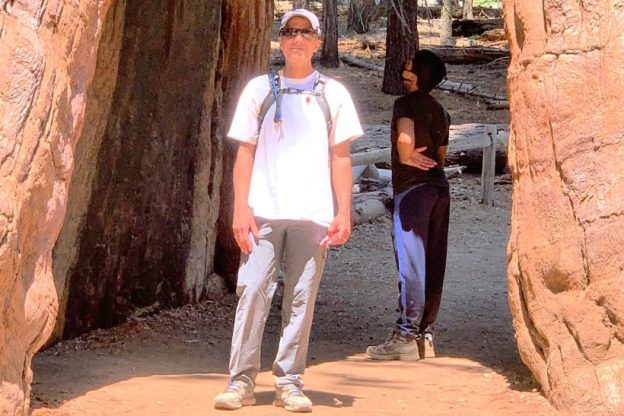
5 questions for … Dr. Javed Sheikh
Javed Sheikh, MD, was recently named 2024 Physician Researcher of the Year by the Southern California Permanente Medical Group.
Dr. Sheikh is the vice area research chair for the Los Angeles area on the Regional Research Committee. He is chief of the Department of Allergy and Immunology at the Kaiser Permanente Los Angeles Medical Center and serves as the training program director for Allergy and Immunology.
What led you to becoming a doctor, and researcher?
With a number of doctors in the family, I knew about the practice of medicine at a young age, and my passion for science confirmed my decision to become a doctor. In both my college and medical school years, I loved studying immunology, which led to my choice of allergy and immunology as a specialty. I worked in lab/animal research in medical school, which I did not like so much. It was not until my fellowship that I really discovered a passion for clinical research!
How did you come to Kaiser Permanente?
I initially came to the Los Angeles Medical Center in 1997 to pursue my fellowship based on the excellent reputation of its Allergy and Immunology Training Program. After the fellowship, I got an academic position in the specialty at Beth Israel Deaconess/Harvard Medical School in Boston.
After 12 years in Boston, I noticed the uptick in discussion about the need for the nation’s medical centers and networks to move toward an integrated, value-based model. During this wave of national change, the timing was perfect for me to take the opportunity to return to the Los Angeles Medical Center in 2013. I took on the role of training program director for the Allergy Fellowship Program, where I myself had trained. I have thoroughly enjoyed the opportunity to lead the training program and mentor so many excellent young clinicians in clinical care and research.
What is the focus of your research?
My initial focus of research while at Harvard Medical School was in eosinophilic (blood cell) diseases and urticaria angioedema (skin conditions), including clinical research on the development of new biologic agents to treat them. Since returning to the Los Angeles Medical Center, I have been able to increasingly focus on population-level research (epidemiology and clinical outcomes) in asthma and allergic diseases, including continued work in urticaria/angioedema and eosinophilic diseases. Most recently, I have been privileged to become involved in national and international panels to write clinical guidelines and evaluate the quality of research.
What research are you most proud of?
Soon after returning to Los Angeles, I was able to participate in asthma disease management and research on a regional level. We had started to notice that the National Committee for Quality Assurance (NCQA) HEDIS asthma quality measure, a tool that measures the quality of health care and performance of health plans, did not seem to correlate with actual clinical outcomes. This observation led to 2 major studies in Kaiser Permanente Southern California’s asthma population. One study, published in 2015, assessed whether this quality measure actually correlated with clinical outcomes. A follow-up study, published in 2019, examined the question in further detail. Both studies confirmed that this HEDIS quality measure is not related to improvement in asthma outcomes in our large population.
Of note, 2 of our allergy and immunology fellows under my mentorship participated in this 5-year long project and were able to serve as first authors on the publications. It was great to share the excitement with them when the results received noteworthy attention from leaders in the field. Our 2 publications contributed to persuading the NCQA to remove this asthma quality measure from the national asthma HEDIS set. It was gratifying to see these years of work leading to a meaningful change in asthma quality measurement on a national level. Having accurate quality measures helps to make sure that doctors will prescribe medicines in the combinations that have been shown by research to be helpful.
Tell us about your passion for mentoring others.
The satisfaction and excitement generated by research is amplified significantly when one can mentor a trainee in research as part of the process. Mentorship has been a hallmark throughout my 25-year research career, resulting in abstracts and/or publications from 14 trainees. It has been great to introduce interested pediatric, internal medicine, and family medicine residents to research on asthma and allergic diseases. This has led several primary care residents to develop an interest in allergy and immunology, as well as research in general. Most satisfying of all has been the privilege to mentor our allergy and immunology fellows in research over the past 11 years and to see them develop their clinical and research skills over their 2-year fellowships.
Bonus question: What do you enjoy doing in your spare time?
I enjoy the outdoors, including regular hikes in the San Gabriel Mountains. I love to travel nationally and internationally and explore new hikes as I discover new areas.
Image: Dr. Sheikh hiking in Yosemite National Park.





